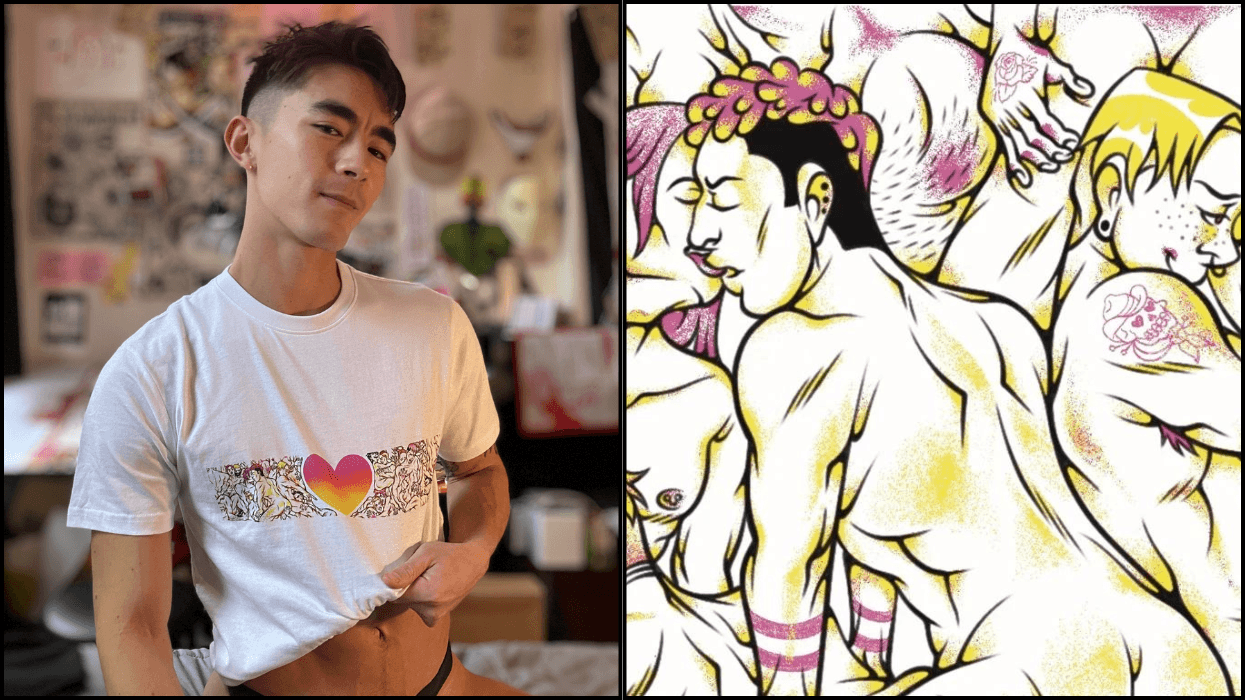Voices
Op-ed: Prop. 8 Hearing Puts Hate (and Incompetence) on Trial
By continuing to use our site, you agree to our Private Policy and Terms of Use.
Op-ed: Prop. 8 Hearing Puts Hate (and Incompetence) on Trial
Op-ed: Prop. 8 Hearing Puts Hate (and Incompetence) on Trial
If you are not a lawyer doing LGBT legal advocacy or a queer activist paying attention to every detail of every LGBT development, you may have missed the goings-on in a Ninth Circuit federal courtroom in San Francisco yesterday. The issues involved the never-ending drama over the fate of California's Proposition 8, the initiative approved by a bare majority of voters in 2008 that eliminated the right of same-sex couples to marry.
If you missed the hearing, count yourself lucky, for hardly ever in one courtroom have we been treated to the level of insult, bigotry, and stigmatizing trash that was presented by those defending Prop. 8.
Following a historic trial that took place in January 2010, now-retired Chief District Judge Vaughn Walker ruled that Prop. 8 is unconstitutional. That ruling has been on hold while the proponents of Prop. 8 appeal Judge Walker's ruling. On display yesterday was the depth of their ignominy in defending this doomed measure.
Since their devastating loss at trial, the proponents have tried their best to distract attention from the fact that Prop. 8 is a blatantly unconstitutional measure that was passed through a campaign relying on fear, deception, and stereotyping of gay men and lesbians. Yesterday's arguments centered on two of the duplicitous tactics deployed by the proponents of Prop. 8.
First up was their never-ending campaign to prevent the public from viewing the official video recording of the trial. Earlier this year, the couples who are challenging Prop. 8 filed a motion seeking to unseal the videos. The city and county of San Francisco and media coalition members, including the Los Angeles Times, CNN, The New York Times, Fox News, NBC News, and the Associated Press, joined the plaintiffs in asking the court to release the videos. In September, Chief Judge James Ware of the U.S. District Court in San Francisco ordered the release of the videos, saying that public access to trials and court records are "foremost among the aspects of the federal judicial system that foster public confidence in the fairness and integrity of the process."
The second half of Thursday's hearing concerned the proponents' outrageous and offensive efforts to convince the courts to throw out Judge Walker's decision striking down Prop. 8 because he is gay and in a long-term relationship. Judge Ware, who was assigned the case after Judge Walker's retirement, denied the proponents' request in June, writing that "the presumption that Judge Walker, by virtue of being in a same-sex relationship, had a desire to be married that rendered him incapable of making an impartial decision, is as warrantless as the presumption that a female judge is incapable of being impartial in a case in which women seek legal relief." The Prop. 8 proponents appealed both of Judge Ware's rulings to the Ninth Circuit.
Yesterday's arguments were heard by the same panel of judges that is presiding over the appeal from Judge Walker's decision striking down Prop. 8: Ninth Circuit judges Stephen Reinhardt, Michael Daly Hawkins, and N. Randy Smith. In the first portion of the arguments, attorneys for the Prop. 8 proponents argued that releasing the trial videos -- a public record of a public trial -- would result in their witnesses being threatened or intimidated. They persisted in these assertions even though the trial has been over for nearly two years, transcripts of the trial are freely available on the Internet, and the trial transcripts have even been used to stage a full-length video reenactment of the trial, which is also available on the Internet.
Regardless of these facts, the attorney for the proponents insisted that intimidation and violence perpetrated by gay people would result if the tapes were released. What evidence did he present to support this assertion? The destruction of lawn signs during the Prop. 8 campaign. At this point, I felt mightily in need of a drink to calm my racing heart.
Fortunately, the judges were dismissive of these arguments. But the judges also seemed troubled by the possibility that Judge Walker made a binding promise to the parties that the videotape would not be publicly released. Therese Stewart, who appeared on behalf of the city and county of San Francisco, urged that Judge Walker promised only that the videotape would not be broadcast while the trial was proceeding -- not that it would be sealed for all time. Despite Stewart's spirited defense, the judges continued to raise concerns that the Prop. 8 proponents did not have fair notice that the videotape might eventually be made public.
In the midst of all this uproar, the question that goes begging to be raised is, What in the hell are they so afraid of? Why would they not want the public to see their vigorous and effective defense of Prop. 8? Why would they not want the American people to observe the mountain of evidence that was presented showing how much better society is by barring same-sex couples from marrying? Why would they want to hide from view their masterful and superior performance when matched against Ted Olson and David Boies?
Oh, wait ... well, that sure is embarrassing.
And now, in case you ever wondered, you know the real reason they do not want the tapes released.
In contrast to the argument about releasing the tapes, the judges appeared very skeptical of the Prop. 8 proponents' second offensive and ludicrous argument that Judge Walker was biased and his decision should be invalidated because of his sexual orientation and relationship status. Appearing for the plaintiff couples, David Boies challenged that argument aggressively, noting that the very same claims of bias were used to try to keep women and people of color from deciding discrimination claims. The judges also focused on the apparent contradiction in the Prop. 8 proponents' argument -- if (as the proponents claim) a judge in a same-sex relationship has an improper direct interest in the outcome of a case about the right to marry, then a judge in a heterosexual marriage would have an improper direct interest as well, based on the proponents' claim that permitting gay couples to marry devalues the marriages of heterosexual couples.
At this point I was actually thinking there might be something to the "violent gays" argument, as I wanted to pretty much slap silly the hater attorneys defending Prop. 8 and attacking the people's right to know and the character of Judge Walker. But I restrained myself and went home to a gin and tonic instead.
Based on Thursday's arguments, it's difficult to gauge how the Ninth Circuit will rule on releasing the videotape. The trial record in this case is an irreplaceable historical record of a pivotal moment in the movement for LGBT equality. It will be disappointing if the court keeps the trial video locked away from the public and out of the hands of historians, scholars, and educators. In contrast, the court seems likely to uphold Judge Ware's ruling that Judge Walker had no duty to recuse himself. The judges seemed to recognize the argument that Judge Walker should have recused himself for what it is: a thinly veiled replay of long-discredited attempts to prevent judges from hearing important civil rights cases on the basis of their race, sex, religion, or other personal factors that have no bearing on a judge's ability to be fair and impartial.
It's no wonder that the Prop. 8 proponents are doing everything they can to distract attention from the real issues in the case and to hide the trial from public view. The proponents were given every opportunity to come forward at trial with any good reason to uphold Prop. 8's treatment of same-sex couples as second-class citizens. They came up empty, so they decided to change the subject. On Thursday the Ninth Circuit appeared to see through at least part of their smokescreen. Regardless of how they rule on releasing the trial video, the judges seem ready to move ahead and decide whether Judge Walker's decision should be upheld on its merits, not on the basis of unfounded personal attacks on the integrity of the judicial process.
The arguments yesterday were hard to hear. The good news is they represent the swan song of our venal and feckless opposition. We are on the verge of sweeping change, and after yesterday's moronic display, that day cannot come soon enough.
KATE KENDELL is executive director of the National Center for Lesbian Rights, a national legal organization committed to advancing the civil and human rights of LGBT people and their families through litigation, public policy advocacy, and public education.
Want more breaking equality news & trending entertainment stories?
Check out our NEW 24/7 streaming service: the Advocate Channel!
Download the Advocate Channel App for your mobile phone and your favorite streaming device!

